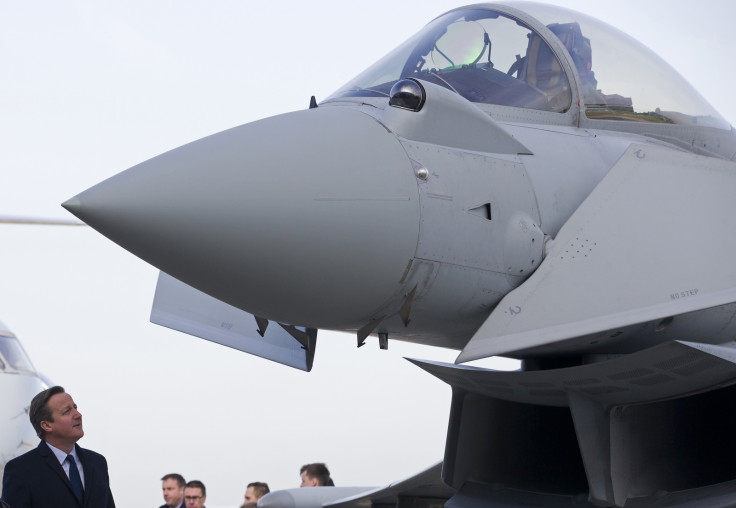EU referendum: Brexit may force Britain's biggest strategic military shift for 50 years

A vote for Brexit could mean cuts to Britain's military spending and its biggest strategic shift since the late 1960s, a report by a leading think tank has found.
Although there was a strategic defence and security review in November 2015, the Royal United Services Institute (RUSI) think tank's assessment found a Brexit vote could mean this would have to be revisited.
The current defence budget will rise from £35bn this year to £39bn in 2020 – 2021 and £179bn is earmarked for equipment and support in the next decade. But RUSI's deputy director Malcolm Chalmers, who carried out the study, said Brexit could mean cuts of up to eight percent in the next three years.
"While some short-term cut in planned defence spending is probable, the long-term impact would depend on whether the initial shock as a result of a leave vote was followed by a longer-term deterioration in economic performance," he said.
He argued that as Britain had the strongest military in the EU, a UK exit would pressure it to redouble its commitment to European defence to ease concerns that Brexit would weaken NATO.
"The UK's commitment to European defence would represent one of its few bargaining chips as it entered a period of tough negotiations on the terms of its future economic engagement with its EU neighbours."
He added that Brexit could mean "a strategic shift as profound as that triggered by the country in the late 1960s and early 1970s when the UK withdrew the bulk of its military forces from Southeast Asia and the Persian Gulf".
The defence and security establishment widely supports Britain remaining in the EU, while some companies such as Airbus have even sent letters to employees informing them about the benefits of staying in the EU.
Also, a survey by the defence trade body ADS found 70% of defence companies and 74% of aerospace firms wanted to stay in the EU.
However Brexit campaigners say that an exit from the EU would give Britain the chance to reassert its role as a major global power.
In an open letter to the Daily Telegraph, former defence secretary Liam Fox said the Lisbon Treaty removed the UK's veto over defence policy, adding that the EU Global Strategy on Foreign Security Policy, which will be launched after the referendum, will bind the UK to "new European military and operational structures".
"Outside the EU, the UK can reassert the primacy of Nato. A vote to remain is a vote to undermine Nato, and a betrayal of what the men and women of the Armed Forces join up for; to defend Queen and Country, answerable only to the British voter," Fox said in the letter which was co-signed by fellow Conservative MPs Bernard Jenkin and Sir Gerald Howarth.
© Copyright IBTimes 2025. All rights reserved.






















